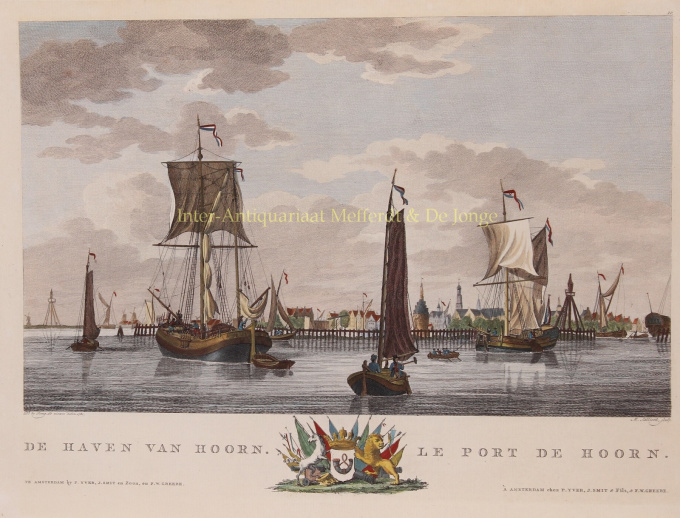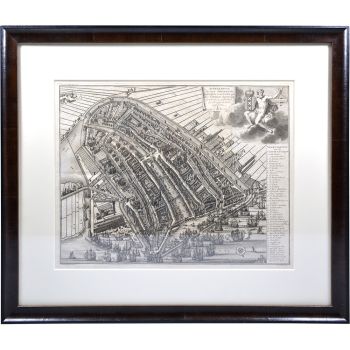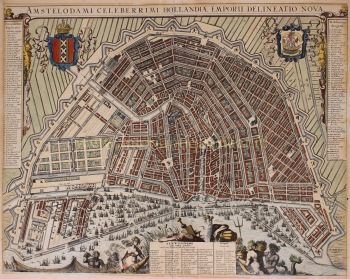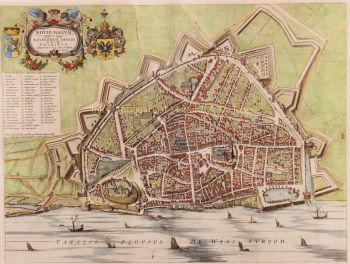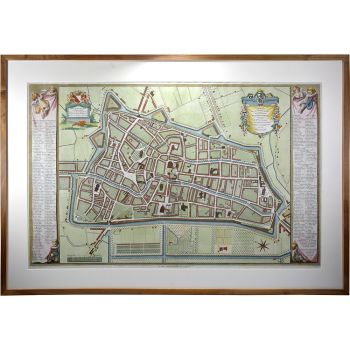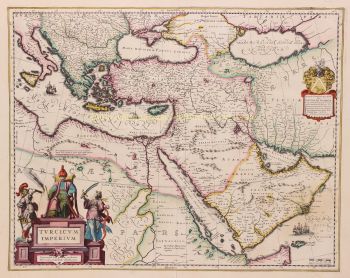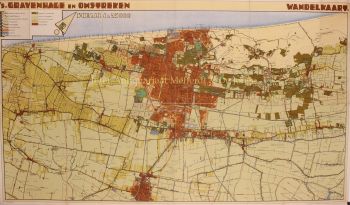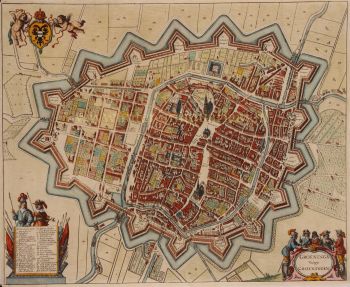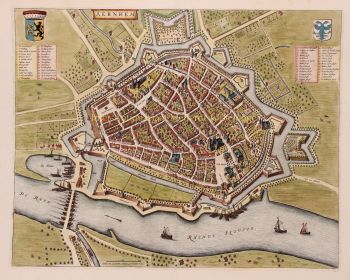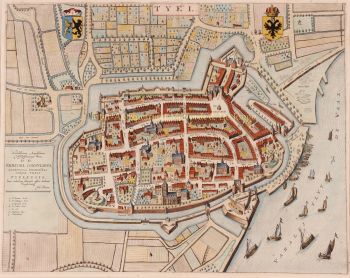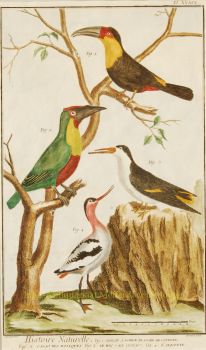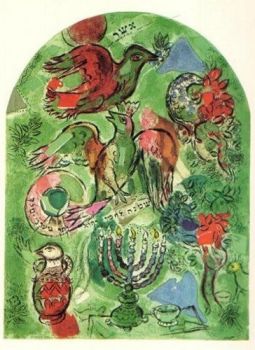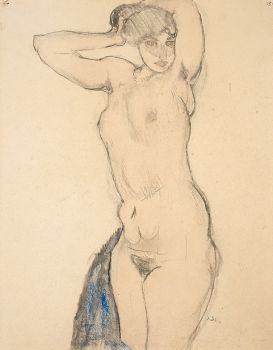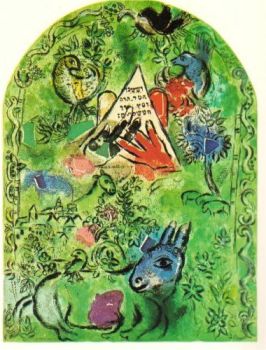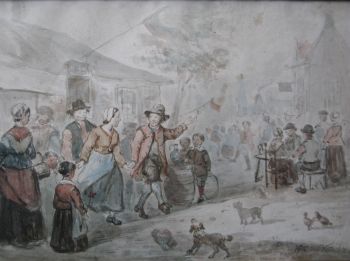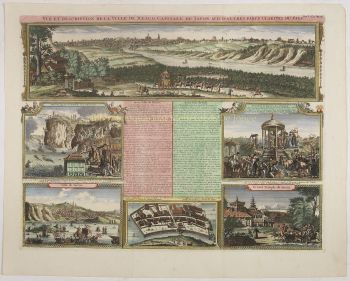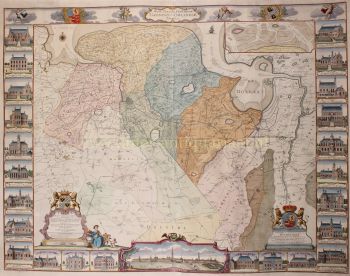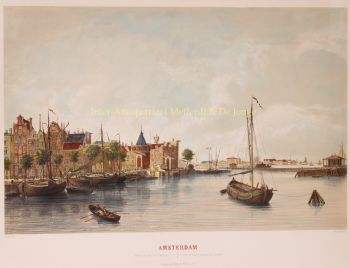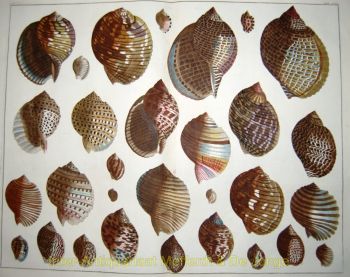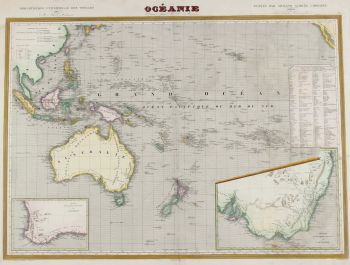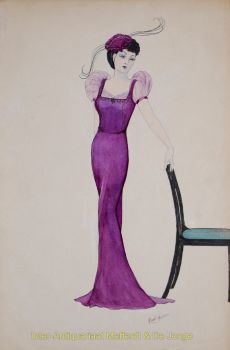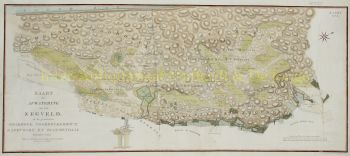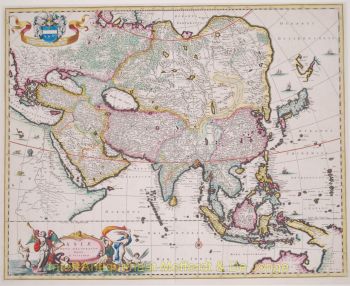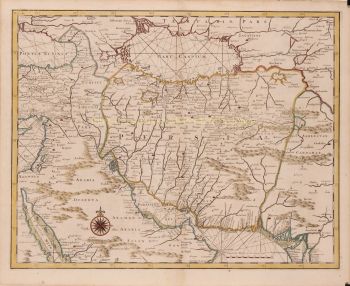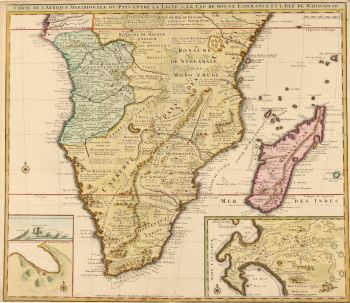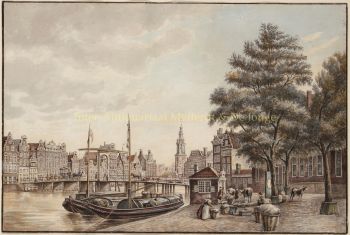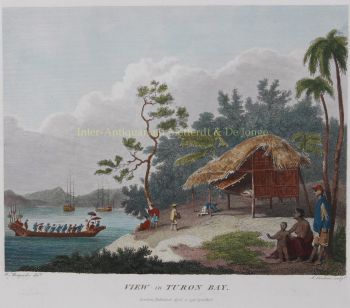Hoorn 1802
Matthias Sallieth
€ 295
Inter-Antiquariaat Mefferdt & De Jonge
- About the artwork
"De Haven van Hoorn - Le port de Hoorn", copper engraving made by Matthias de Sallieth after a drawing by Dirk de Jong from 1781, for the "Atlas van de zeehavens der Bataafsche Republiek" by Pieter Yver, J. Smit & Zn. and F.W. Greebe, published by Johannes Allart in 1802. Later hand-coloured. Dim. 26 x 35.1 cm. We see Hoorn from the water. In the foreground sailing ships. Behind them a bulwark with a harbour light on the right. To the left on the horizon a second harbour light. After the Battle of the Zuiderzee, fought in the waters off Hoorn in 1573, a period of great prosperity began. Hoorn is the administrative centre of West Friesland. Dutch seafaring expanded rapidly and people traded all over the world. The Verenigde Oost-Indische Compagnie has the monopoly on trade with Asia. Hoorn is one of the six towns where the VOC has an office, a 'chamber'. Every year, ships sailed from Hoorn to the East Indies on behalf of the VOC. In 1649 Hoorn reached its greatest extent with the last harbour expansion. The town then had 15 to 16,000 inhabitants. Shortly afterwards, a long period of economic decline and decay began. Many people experienced poverty. The only bright spots are the VOC, the cheese market and the gold and silver smithies that worked for the small group of rich West Frisians living on the Grote Oost and the Koepoortsweg. In 1795, French revolutionary troops also enter Hoorn. 700 French soldiers settle in the city. The population declines to 7,500 inhabitants. Commercial activities are stopped and 1,600 houses and warehouses are demolished. It is a low point in the history of Hoorn. Price: Euro 295,-
Are you interested in buying this artwork?
Artwork details
Related artworks
- 1 - 4 / 24
- 1 - 4 / 12

